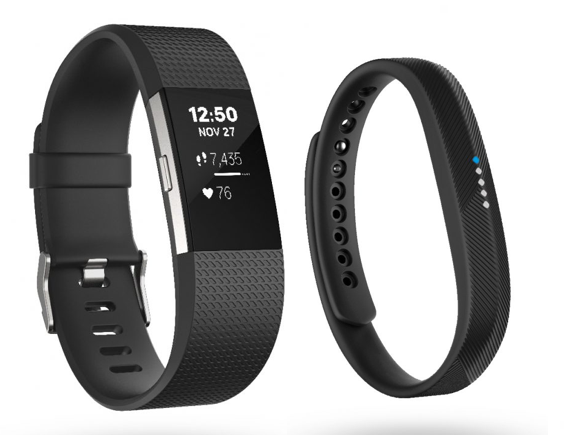 Fitbit is once again facing a patent lawsuit, this time over the haptic feedback technology present in its last two generations of trackers. San Jose-based Immersion filed suit in the U.S. District Court for the Northern District of California over three patents, and is also pursuing legal action in China to get Fitbit's Chinese distributor Runtong to stop making and selling Fitbit devices as well.
Fitbit is once again facing a patent lawsuit, this time over the haptic feedback technology present in its last two generations of trackers. San Jose-based Immersion filed suit in the U.S. District Court for the Northern District of California over three patents, and is also pursuing legal action in China to get Fitbit's Chinese distributor Runtong to stop making and selling Fitbit devices as well.
“Since 1993, Immersion has been a leading innovator in the field of haptic technology, leveraging our culture of innovation and market-leading haptic know-how,” Victor Viegas, Immersion’s CEO, said in a statement. “Our valuable patents in the US. and China help us protect our longstanding investment in research and development in this exciting field. We are disappointed that Fitbit rejected our numerous attempts to negotiate a reasonable license for Fitbit’s products, but it is imperative that we protect our intellectual property both within the US and through the distribution chain in China.”
The three patents at issue are patent number 8,351,299, “Apparatus and Method for Providing Condition-Based Vibrotactile Feedback”; patent number 8,059,105, “Haptic Feedback for Touchpads and Other Touch Controls”; and patent number 8,638,301, “Systems and Methods for Transmitting Haptic Messages”.
Immersion is seeking a court order requiring Fitbit "to immediately and permanently stop manufacturing, using, selling, offering for sale, or importing infringing Fitbit devices in both the US and China; as well as damages to compensate Immersion for the harm the infringement has inflicted" according to a statement from the company.
"Fitbit believes the suit brought by Immersion has no merit. Since its inception, Fitbit has amassed more than 450 issued patents and patent applications," a spokesperson for Fitbit said in an email. "As the pioneer and leading global wearables brand, Fitbit has developed and delivered innovative product offerings to empower its more than 50 million registered users to lead healthier, more active lives."
Fitbit has faced a good deal of litigation since the company went public and became a leader in the wearable space, much of it revolving around patents. We've covered Fitbit's patent dispute with Jawbone at length; it was already winding down, with several of both company's patents essentially invalidated by the courts, even before news of Jawbone's liquidation broke last week. Fitbit was also sued by Valencell over patents related to heart rate tracking. That case is still ongoing. In addition to patent litigation, Fitbit has faced class action suits alleging dangerous inaccuracy of both its heart rate and sleep tracking capabilities.
Lately we've seen a trend in cases like these of the patents being ultimately struck down by the court for being unenforceably broad, but that may not be the case here, where the patents at issue are more concrete and hardware-related.
















